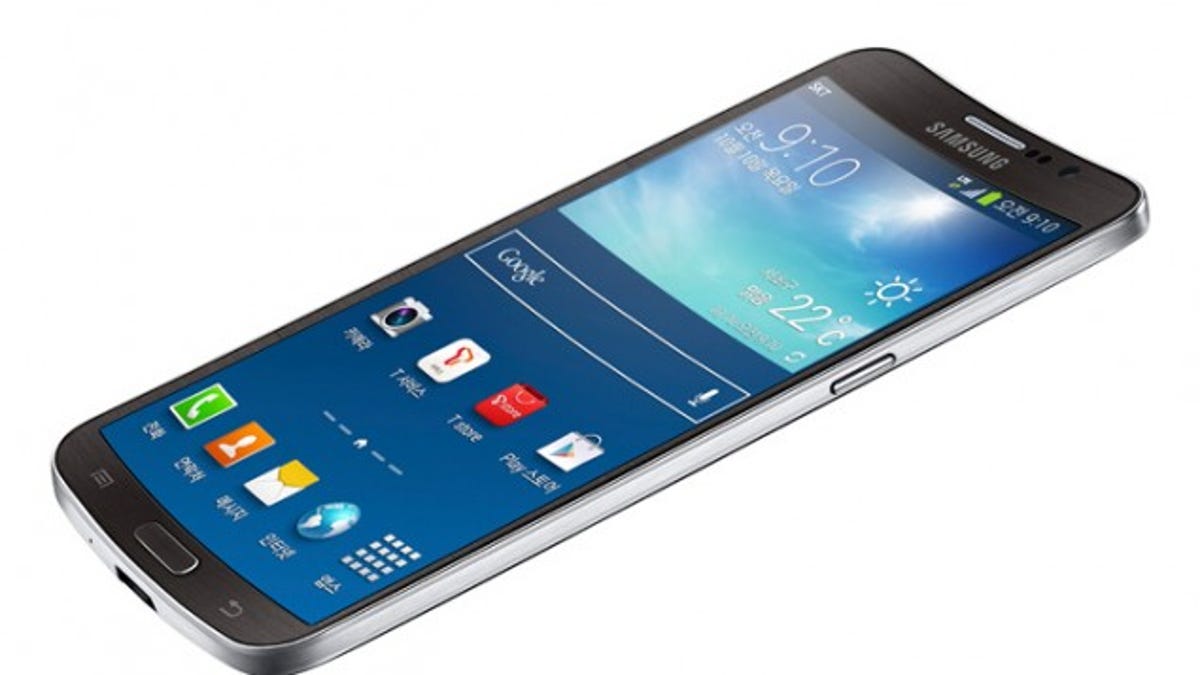Samsung Galaxy Round: Get bent, get buzz -- but get real
<b>analysis</b> The curved AMOLED display is eye-catching, but really Samsung, is that the only selling point? Good luck with that.

The South Korean electronics giant late Tuesday unveiled the
Samsung has long followed the strategy of trying as many features and designs as possible to see what takes off. It also will include technology in devices simply for technology's sake, not because consumers really need those features. Samsung's top executives likely don't expect the Galaxy Round to be a huge seller -- hence its release only in Korea at this time -- but in order to attract more customers over the long run, they will have to articulate the benefits of such a design. So far, the only selling point for Samsung's curved smartphone appears to be that curve, not what that design actually allows users to do.
"Other than bragging rights, how does a curved screen change the user experience?" asked Current Analysis analyst Avi Greengart. "This seems to be more about Samsung's engineers being proud of themselves that they were able to do something they've been trying to do for a while. But Samsung hasn't answered the question of why it should be done in the first place."The Galaxy Round release comes as Samsung faces a slowdown in its core smartphone market. Consumers are still buying mobile devices but not at the rapid clip of past quarters. That means companies like Samsung must find other ways to wow buyers and get them to fork over the money for new devices. Companies are releasing unique designs -- such as curved displays and buttons on the back of the phones (hello, LG G2) -- to differentiate their products from those of rivals, but many of those tweaks are gimmicky at best.
The real test of flexibility
What may really catch consumers' attention -- and their dollars -- is a phone with a flexible device that actually could bend or roll up. It's not clear just what the first flexible devices may eventually be like, but that capability, unlike a slight curve, could really change the mobile device market. Samsung has shown concept devices with truly flexible screens, and it's undoubtedly prepping one for release at some point. But as CNET has predicted, consumers will just have to wait a bit longer. The Galaxy Round is not that sort of device.
The Galaxy Round is sure to attract some buyers who desire a phone with a unique design, but aside from the novelty factor, there aren't many features to tempt customers. It doesn't appear that the Galaxy Round will be any more durable than other Samsung phones, and the new software features for Round, though interesting, probably won't be enough to get buyers to switch to the device. And while the phone may fit the curve of one's face, it may not fit as well in a pocket, and anyway, many people now use headphones to talk on their phones. The Galaxy Round may find a niche market, but it surely won't be a blockbuster or game changer like the
"This is another example of Samsung trying everything and seeing what will work," Ovum analyst Jan Dawson said. "If buyers are looking for something unique that others don't have, there will be a market for it. But it won't be huge."
A curved display itself is not really a benefit to consumers. It doesn't make reading, typing, game playing, or other functions easier. In some cases, those actions could actually be more difficult, though it's hard to tell without actually trying out the phone. A curved phone may fit more nicely in someone's hand, but other phone makers have accomplished that by curving just the back of the phone, as with the
It's also questionable whether the Galaxy Round will be more durable than other devices, as many sites speculated before the phone's announcement. If the display is plastic instead of glass, it's less likely to shatter if dropped, but that's not clear at this time. If the screen is glass, it could actually be less durable than devices like the Galaxy S4 and Note 3. This is another factor that's hard to determine before the device hits the market.
On the plus side, what the Galaxy Round does is help cement Samsung's position as a leader in hardware and components. Even if no one buys the phone, Samsung has still shown what it's capable of creating. The Galaxy Round may also allow Samsung to examine new ways for consumers to interact with their phones, and some of those features could make their way to other flagship devices in the future.
But right now, it's not clear why anyone would buy one -- unless they're looking for a gee-whiz device that no one else has.

